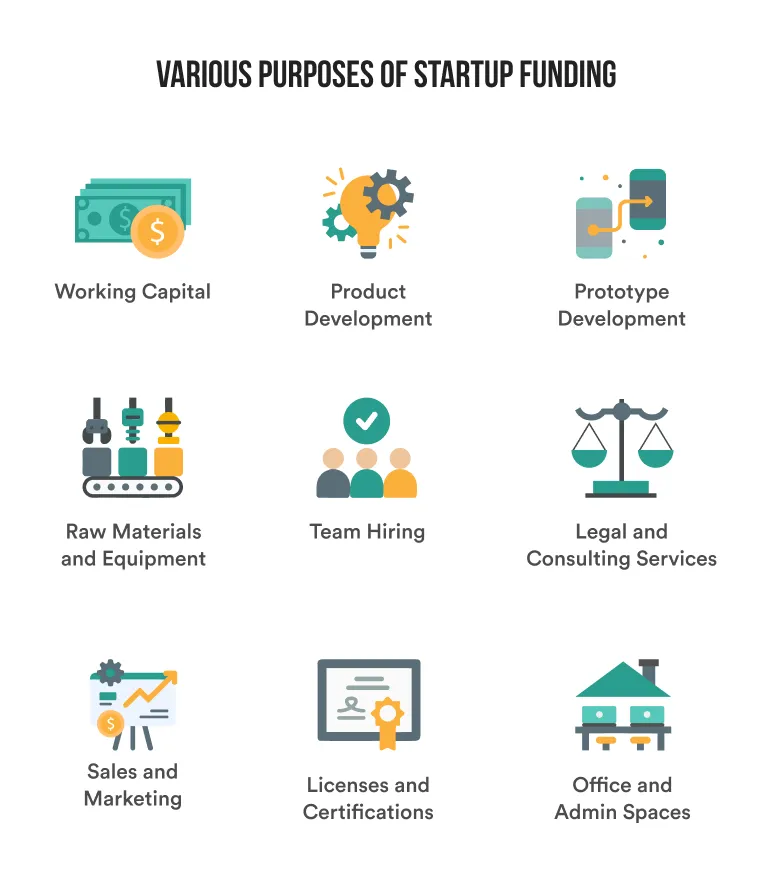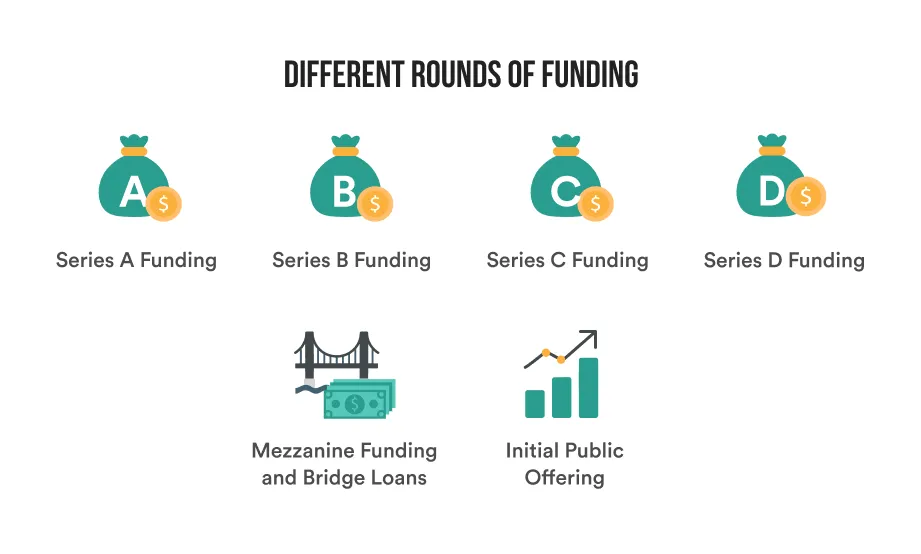

How Does Startup Funding Work?
January 31, 2022
It’s not surprising that countless startups are emerging worldwide and in our country. Most of these are from youngsters right out of college or people with little to no knowledge about the nitty-gritty of how businesses work.
Naturally, it can sometimes be difficult to gather the funds required to run a business, look for office spaces to set up, or other infrastructure related to a business. In this article we are going to talk about everything there is to know about startup funding.
Startup funding is undoubtedly the first and most crucial part of starting a business. If you have all the ideas and the organizational structure perfectly laid out, but don’t have the funds to implement them, no good can come out of it.
Even if capital is available, you need to understand how the entire funding process works because it’s not easy. Having no knowledge of startup funding can hinder your business from becoming successful.
What Is A Startup?
A company in its initial stages of development before there’s any proper footing is called a startup. It’s founded by entrepreneurs to address specific problems or demands for a product or a service. These are usually high-cost and low-revenue companies, owing to the fact that anything that generates revenue takes some initial investment.
Because they are high-cost, the need for capital is often not met because of which founders seek investors to make a profit in the long run and often share it with them.
What Is Startup Funding And How Does It Work?
Startup funding, as the name suggests, is a process through which new startups gather money in various ways to fund all aspects of their business. This could include money from friends and family, loans from banks, angel investors, or even accelerators and incubators.
When startups receive money from accelerators, it’s usually in exchange for a percentage of ownership in the company through equity.
When funds is arranged for in a formal way to fulfil a specific business need, it’s called a funding round. These usually include investments from venture capital firms or angel investors as well. So, to sum up, startup funding is a financial investment in a new company for business infrastructure, sales and marketing, office spaces, and inventory among others.
While many founders decide to fund everything on their own for independence and to prevent debts and equity dilution, a lot of third-party organizations for providing the necessary capital like accelerators, venture capitalists, etc. is emerging.
Why Is It Important?

Startup funding can be used for various purposes, some of which include:
- Working capital
- Product development
- Prototype development
- Raw materials and equipment
- Team hiring
- Legal and consulting services
- Sales and marketing
- Licenses and certifications
- Office and admin spaces
These are some of the general purposes that startup funding can fulfil, there can be business-specific purposes too.
Steps To Startup Fund Raising
There are certain steps you need to follow in order to make the best decisions when it comes to startup funding. If there is a structure and order to your business right from the initial stages, it’s a sure way to make it successful.
Pre-seed Stage - Need For Funding
This includes the brainstorming and pre-requisite research needed to start a business. During the pre-seed stage, it is important that you answer all the basic questions regarding your new startup. How easily executable is your idea? Has it been done before? If yes, what sets you apart from the rest? How costly is executing your idea going to be?
These are some questions that need answering, after which you need to lay out a financial forecast based on projected sales data influenced by market and economic indicators. You also need to plan how much money you’ll be needing for what, which brings us to the next stage.
Investor Targeting
Every venture capital firm that invests in new startups has an investment thesis. It is nothing but a written document that recommends investment options based on research that gauges the options’ profit potential. Analyzing and figuring out the firms’ investment thesis by thoroughly going through their brochures, fund description and overall website, you can decide if your startup is optimal according to the thesis.
This will help you identify active investors suited for you, the average funding amount you might get, or even tips on how to tweak your pitch deck to land the investor.
Seed Funding Stage - Investment Readiness
This is the first official step into establishing a business because this is where you gather the funds from potential investors. Entrepreneurs approach mentors and investors to pitch their ideas asking for funds, offering company equity in return.
For you to land a good investor, you need to sell yourself perfectly and concentrate a lot on revenue projections and their returns. Profitability, uniqueness of the startup, competitive advantage, future plans, and talented team are some of the factors based on which startups are evaluated for seed funding.
Startups requiring anywhere between $100,000 to $6M are eligible for the seed funding stage.
Due Diligence By Interested Investors
Once you present your pitch deck to the potential investors, they conduct their due diligence of the startup analyzing it from every business angle before making an equity return deal. Claims regarding revenue projections and market numbers are verified to see how the startup is ready to deal with problems if any in the future.
Once the due diligence is completed and if it becomes a success, both parties sign an agreement with mutual benefits and terms.
Different Rounds Of Funding
How startup funding works is based on where a startup stands, in terms of revenue generation and the size of the company. There are various rounds of funding that are explained below.

Series A Funding
This round of funding is the beginning of venture capitalist investment where equity is exchanged in return. After this first round of funding, a startup can set itself up to become a business for future growth. Scalability is highly important in this stage as it determines the very fate of the company.
Optimizing your business, accounting for financial losses if any, and developing your product or service despite hardships is important. The more you demonstrate that you can generate income, the more investment you’ll receive.
Series B Funding
This is a funding round for businesses that have established a steady source of revenue. Most startups that come in this funding round have proven that their business is scalable and have demonstrated slivers of the same.
Employing exceptional sales and marketing techniques and increasing the market share having dedicated teams to take care of these will help your startup reach this stage.
Series C Funding
Businesses that have shown immense potential for growth and are looking to expand globally are the ones in this funding round. It’s relatively easier to find investors at this stage because you have gained their trust by showing you are good at what you do.
Building new and better products by expanding your markets and possibly acquiring underperforming new startups in the same industry can help you further improve what you are doing.
Series D Funding And Beyond
The businesses that reach this level of funding have either found new opportunities to expand before the Initial Public Offering - IPO (an opportunity to acquire an underperforming competitor for instance) or because they underperformed in Series C of funding.
Raising more funds to address the issues missed in previous rounds of funding is the main purpose of Series D funding. With that being said, there is no limit to how many rounds of funding a business can go through. They can keep increasing funding rounds parallel to the businesses getting better.
Mezzanine Funding And Bridge Loans
These are only for businesses that surpass the $100M value of worth. Mezzanine loans are a mixture of debt and equity for lenders, while bridge loans are short-term as the name suggests. IPOs happen right after such financial gaps are taken care of, making the business a true hit in the market.
This funding round is dedicated to increasing a company’s market value by share acquisition.
Initial Public Offering (IPO)
An IPO (Initial Public Offering) is the highest measure of success for a startup. This is when the company shares are available for public purchase for the first time. There are certain government requirements that companies need to meet in order to be listed as an IPO.
An IPO is used to create funds for further growth or owners selling the shares for personal income.
Final Word
So that was everything you needed to know about startup funding right from basics. Plan everything well beforehand to stay on top of your game and analyze your options thoroughly before you pick an investor. You need to invest time, knowledge, and resources instead of just money to truly become successful.
Trying to build sustainable companies is more important than generating more revenue. It’s more about building a legacy than making money.
More Insights







Thank you for your comment! It has been successfully submitted and will appear once it has been reviewed and approved.